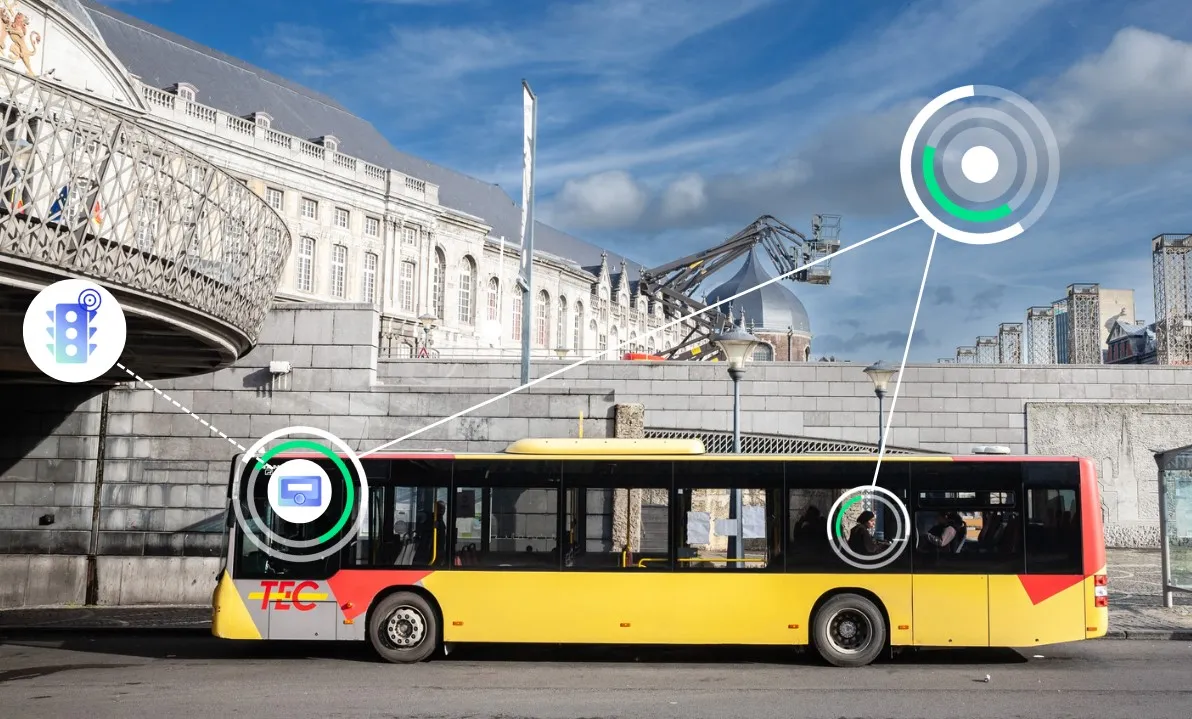
Yunex Traffic is to develop, implement and maintain a prioritisation system for public transport in Wallonia, Belgium, to encourage people to make the switch from private cars to bus or tram.
SPW (Service Public de Wallonia) and TEC (Transport en Commun) awarded Yunex the project, the first phase of which is expected to be complete by the end of 2023.
It is based on Yunex Traffic ICTraffic C-ITS, which the firm says is compliant with the European ETSI (European Telecommunications Standards Institute) standards for C-ITS, which allows for "fluent cross-border interoperability".
The system processes continuous real-time updates of the position of the approaching bus, ensuring that at every intersection the light automatically switches to green "at the perfect moment".
It uses Vehicle to Everything (V2X) technology,with signal exchange coming from existing roadside units and on-board units which are already available on the vehicles.
The system will "contribute to a reduction in operational costs, travel times and journey time, thus supporting the city in its mission to increase the attractiveness of public transport", Yunex adds.
“Public transport is one of the cornerstones of sustainable urban mobility," says Ronny Govers, MD Yunex Traffic BeLux.y. "Strengthening it is therefore an important step towards greener streets and livable cities."










